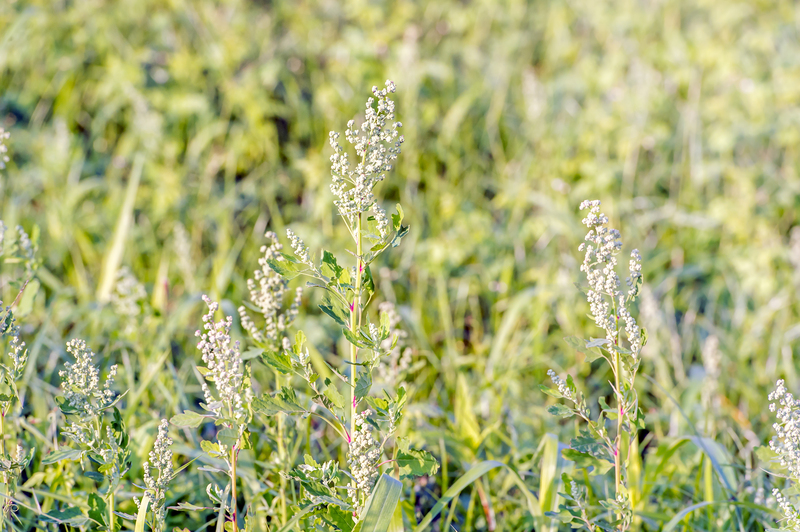Gardening is often perceived as a calming pastime, but its benefits go far beyond the simple pleasure of growing plants. This multifaceted activity combines physical exercise, mental wellness, and even social engagement into a holistic package that greatly enhances overall well-being. In this article, we'll explore the numerous ways gardening can improve your physical health, mental health, and social life.
Physical Health Benefits
Gardening involves various physical tasks such as digging, planting, weeding, and watering. These activities can serve as an effective workout, helping to burn calories and strengthen muscles. According to the Centers for Disease Control and Prevention (CDC), gardening can be considered a moderate-intensity exercise, potentially burning up to 330 calories per hour. Here are more ways gardening contributes to physical fitness:
- Strength and Flexibility: The diverse range of movements helps in enhancing overall muscle strength and flexibility. Activities like lifting pots and carrying soil bags contribute to muscle development.
- Cardiovascular Health: Continuous, moderate activities like weeding and raking can improve cardiovascular health by increasing heart rate and promoting blood circulation.
- Vitamin D Exposure: Spending time outdoors while gardening exposes you to sunlight, which helps in the natural production of Vitamin D. This is essential for bone health, immune function, and mood regulation.

Mental Health Benefits
The impact of gardening on mental well-being is substantial. A growing body of research suggests that gardening can help reduce stress, anxiety, and depression. Here are several mental health benefits associated with gardening:
- Stress Relief: The repetitive tasks involved in gardening can be meditative, helping to lower stress levels. The physical act of planting and nurturing plants invokes a sense of calm and mindfulness.
- Sense of Accomplishment: Watching your garden grow and flourish under your care can foster a strong sense of accomplishment and purpose, which can be particularly rewarding.
- Mental Clarity: Being surrounded by nature and greenery can naturally reduce mental fatigue and enhance cognitive functions. Gardens often serve as peaceful retreats where you can unwind and rejuvenate.
Connecting with Nature
In today's fast-paced, technology-driven world, many people feel increasingly disconnected from nature. Gardening provides an excellent opportunity to reconnect with the natural world. Several studies have shown that spending time in green spaces can improve concentration and reduce symptoms of Attention Deficit Hyperactivity Disorder (ADHD). Additionally, the presence of plants has been linked to improved air quality and reduced noise pollution, both of which positively affect mental well-being.
Social Benefits
Gardening can also be a social activity that can strengthen community ties and enhance social well-being. Community gardens and gardening clubs offer platforms for people to come together, share knowledge, and work towards common goals. Here are some of the social benefits of gardening:
- Community Engagement: Participating in local gardening groups or community gardens can create a sense of community and belonging. These social interactions can help combat loneliness and build support networks.
- Family Bonding: Gardening can be a fantastic way for families to spend quality time together, creating lasting memories and teaching valuable lessons about nature and responsibility.
- Cultural Exchange: Gardens often serve as cultural melting pots where people from different backgrounds can come together, share their unique gardening traditions, and learn from one another.
Boosting Nutritional Intake
One of the most tangible benefits of gardening is the potential to grow your own fruits, vegetables, and herbs. Homegrown produce is often more nutritious and fresher than store-bought alternatives. Gardening encourages healthier eating habits and provides easy access to organic, pesticide-free food, which can lead to a more balanced diet. Here's how gardening impacts your nutritional intake:
- Fresh Produce: Growing your own vegetables ensures that you have access to fresh, pesticide-free produce, which can be far more nutritious and tastier than store-bought options.
- Herb Gardens: Cultivating herbs like basil, parsley, and thyme can elevate your culinary creations while also imparting numerous health benefits. Fresh herbs are packed with antioxidants and essential nutrients.
- Improved Diet: The act of growing your own food often encourages more balanced eating habits. You're more likely to consume a variety of fruits and vegetables if you've invested time in growing them.
Educational and Cognitive Benefits
Gardening offers a unique platform for lifelong learning and cognitive stimulation. The practice involves continuous problem-solving, planning, and hands-on activities that engage the brain. Here are some educational and cognitive benefits:
- Learning Experience: Gardening is a treasure trove of knowledge about biology, ecology, and chemistry. It provides ample opportunities to learn about plant life cycles, soil health, and sustainable practices.
- Cognitive Development: For children and young adults, gardening can sharpen problem-solving skills and promote critical thinking. For older adults, it can help maintain cognitive function and delay the onset of dementia.
- Creative Outlet: Designing garden layouts, choosing plant combinations, and experimenting with colors and textures can tap into your creative instincts, offering a fulfilling artistic outlet.
Sustainable Living
Gardening also encourages more sustainable living practices. By growing your own food, you reduce dependence on mass-produced agricultural products and lower your carbon footprint. Here are some ways gardening promotes sustainability:
- Composting: Creating compost from kitchen scraps and garden waste reduces landfill waste and enriches the soil, promoting a more sustainable gardening practice.
- Water Conservation: Several gardening techniques, like xeriscaping or the use of rain barrels, encourage efficient water usage and conservation.
- Biodiversity: A diverse garden can support a range of beneficial insects, birds, and other wildlife, enhancing the local ecosystem's biodiversity.

Therapeutic Benefits
Gardening is increasingly used as a form of therapy to help people cope with various physical and mental health issues. Horticultural therapy uses gardening activities to promote healing and rehabilitation. Here's how:
- Physical Rehabilitation: For individuals recovering from physical ailments or surgeries, gardening offers a form of low-impact exercise that aids in the recovery process.
- Mental Health Therapy: Horticultural therapy has been shown to be effective in treating anxiety, depression, and PTSD. The act of nurturing plants can serve as a metaphor for self-care and growth.
- Special Needs: For individuals with special needs or disabilities, gardening can offer unique sensory experiences and a sense of accomplishment, enhancing their quality of life.
Conclusion
Gardening is far more than a simple hobby; it is a comprehensive activity that offers a multitude of benefits for physical health, mental well-being, social engagement, and even cognitive development. Whether you have a sprawling garden or a small balcony with potted plants, the act of tending to plants can significantly enhance your quality of life. So, grab a trowel and some seeds, and start experiencing the holistic benefits of gardening today.





